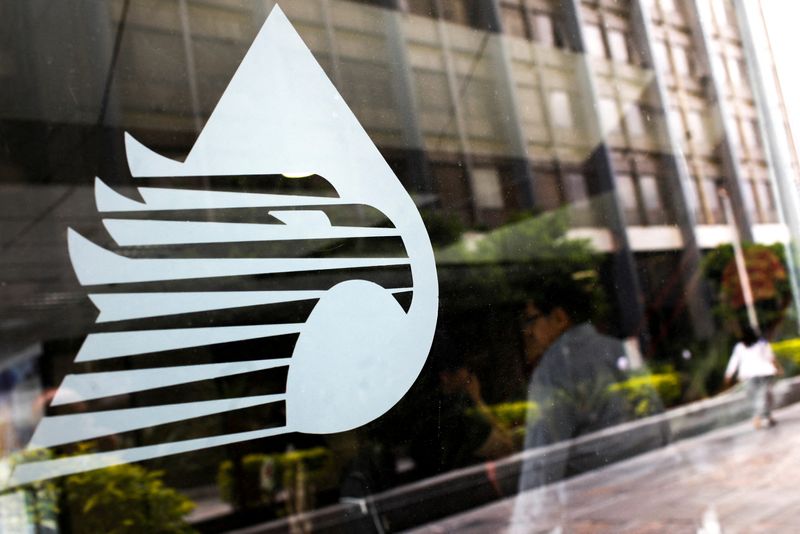By Adriana Barrera
MEXICO CITY (Reuters) - Mexican national oil company Pemex partially resumed paying down what it owes to suppliers at the end of last year, prioritizing large oilfield service companies over upstart private producers, according to company data and four industry sources.
The world's most heavily-indebted oil company has not, however, publicly disclosed the balance of its debts to suppliers since last October, when it said it owed some $5.6 billion, not including other related liabilities, including litigation costs and taxes.
At the end last year's third quarter, Pemex said it owed suppliers $17.4 billion.
The delayed payments to Pemex's key partners are a longstanding problem that could disrupt operations if not resolved.
Pemex did not respond to requests for comment.
It is, however, expected to provide an update on the delinquent payments when it reports its fourth quarter results next week.
President Andres Manuel Lopez Obrador has sought to prop up Pemex, doling out more than $90 billion over the last five years through a mix of tax cuts and capital injections.
The payments to providers restarted after some of Pemex's major service contractors last December publicly criticized the state-run company for its failure to pay up, arguing it put them in a critical situation.
A letter from private oil companies was sent to Mexico's finance minister outlining similar gripes. While it was not made public, a copy was seen by Reuters.
Pemex soon began paying hundreds of millions of dollars in payments to major service providers SLB, Weatherford and Halliburton (NYSE:HAL), in what sources described as an effort to privilege its own dependant operations first.
SLB and Weatherford said in annual reports that they received significant payments from Pemex; SLB said it was paid $560 million in last year's fourth quarter, while Weatherford got $140 million in the same period and later another $142 million in January.
Private oil companies that deliver all their crude and gas production to Pemex, meanwhile, are seeing an average six month delay on payments.
"Pemex's strategy of paying the most important service providers avoided... the delay in Pemex's own activities," according to one of the sources, adding that it "discriminates" against the private producers.
Private oil companies, allowed to operate fields in Mexico following a 2013 constitutional overhaul, produced 98,000 barrels per day (bpd) of crude as of last December, according to oil regulator CNH, compared with Pemex's 1.6 million-bpd output.
"There's an unfairness to Pemex's payments," said another source.
Halliburton and Weatherford declined comment, while SLB did not immediately respond to comment requests.
Baker Hughes, another major Pemex service provider, said it is "pleased to see (Pemex's) continued efforts to pay their suppliers."
In annual reports, Halliburton said Pemex represented approximately 6% of accounts receivable; meanwhile, SLB said Pemex represented 13% of its accounts receivable and Weatherford put the figure at 22%.
Last year through September, Pemex reported that it had paid contractors close to $17.6 billion.
A Pemex source said the company intends is to "improve" payments over the next quarter, using part of a recent tax cut to partially settle the debts.
